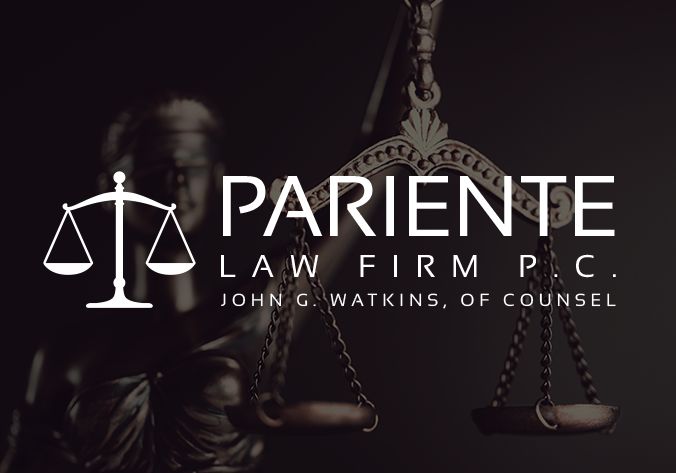Money laundering may be most popularly known as a white collar crime, but in reality, this is a very serious criminal offense with a federal level of punishments. Here we’ll take a look at the steps that add up to money laundering and define more concisely what some of the many forms of money laundering can be. If you have been charged with money laundering, it is important that you seek the skilled counsel of an experienced attorney without delay. The penalties for a conviction of money laundering are very steep and the sooner your attorney can begin to build your defense, the better.
What is Money Laundering?
Defined as simply as possible, money laundering is taking money that was obtained through criminal activity and transferring it through legitimate channels in an attempt to disguise the fact that it was originally obtained in an illegal way. This falls under NRS Chapter 207 (racketeering) in the state of Nevada.
The Three Steps of Money Laundering
While this is not the case in every money laundering scenario, almost all money laundering involves the following three steps:
● The first step is the placement or removal of money generated from illegal activity from one place and placing it into the wider financial system.
● The second step is then layering the funds that have been placed. This is accomplished with the funds are used in more than one financial transaction, which disguises the illegal origin of the funds.
● After this is done, the funds are then integrated, which means they are distributed out to one or several other people.
In order to convict someone of money laundering, they must have been involved in at least one of the steps listed above. It’s also important to know that even an attempt at money laundering that does not successfully follow through can be charged, and that there is not a minimum amount of money involved in the attempt or act of money laundering that must be involved for the charge to be made.
What is Money Laundering Used for?
Money laundering ranges from simple to very complex forms of channeling illegally obtained money to obscure its illegal origins. This is ultimately done to prevent the IRS from being made aware of these illegally procured funds, which will result in auditing and charges of tax evasion.
What Criminal Activities Generate Illegal Gains?
 The kind of funds that require a laundering process are those that are made from criminal activities, but what does this refer to? In Nevada, there is a list of “specified unlawful activities” (or SUAs) from which the money in question must have been derived before someone can actually be convicted of a money laundering crime. SUAs are very serious federal crimes and the list includes the following:
The kind of funds that require a laundering process are those that are made from criminal activities, but what does this refer to? In Nevada, there is a list of “specified unlawful activities” (or SUAs) from which the money in question must have been derived before someone can actually be convicted of a money laundering crime. SUAs are very serious federal crimes and the list includes the following:
● Racketeering
● Fraudulent Crimes
● Extortion, Embezzlement or other acts of Theft
● Trade and Export Violations
● Robbery, Kidnapping, Murder and other Violent Crimes
● Human Trafficking
● Terrorism and Financing of Terrorists
Common Methods of Money Laundering in Nevada
While the most common forms of money laundering scenarios in the state of Nevada typically include casinos, there are actually many other methods by which illegally gotten funds are laundered as well. Some of these methods are detailed below:
● Real Estate Purchase – The purchase of land or property with illegally made funds and the selling of that land.
● Shell Companies and Trusts – Places that allow illegally gained funds to be held or stored that don’t require the immediate divulging of their actual owner.
● Black Salary Payment – Using laundered funds to pay the wages of unregistered employees.
● Trade-Based Laundering – Using misvalued invoices to obscure the flow of funds, either by doubling, under or overvaluing the invoices.
● Bank Capture: The transference of money through a bank whose interest is controlled in on some level by the alleged money launderer.
● Structuring Deposits – Sometimes referred to as “Smurfing”. This process involves parceling large amounts of funds out into small deposits.
● Cash Businesses – A business that is declaring cash received as lawful earnings, when that business was actually set up specifically to receive cash obtained through illegal means.
Penalties for the Conviction of Money Laundering Crimes in Nevada
 Money laundering is a federal offense and as such, cases of money laundering in Nevada are always heard in a federal courthouse (either the Las Vegas or Reno federal courthouse) and the penalties can be quite severe.
Money laundering is a federal offense and as such, cases of money laundering in Nevada are always heard in a federal courthouse (either the Las Vegas or Reno federal courthouse) and the penalties can be quite severe.
The penalties for convicted crimes of money laundering in Nevada are usually as follows:
● Up to a maximum of 20 years in federal prison and/or
● Fines of up to $500,000, or
● Fines of twice the value of the funds or property involved in the money laundering (fines will be determined by which amount is greater).
Are There Defenses Against Money Laundering?
Yes, there are actually many ways for an experienced attorney to build a defense against the crime of money laundering. For this reason, it is imperative that anyone who has been charged with this very serious crime contacts an attorney as soon as possible to give them time to understand the circumstances of the case and build a strong and thorough defense.
One avenue of defense involves the misconduct of the police during the investigation of money laundering. When someone is charged with money laundering in Nevada, the government has the right to freeze their assets under the asset forfeiture laws in this state. While this is a common occurrence in alleged money laundering cases, there are still proper search and warrant procedures that must be followed in the seizure of any assets. Evidence that was illegally obtained can be suppressed in federal court.
There must also be proof that the alleged offender had the intention to launder money and that the necessary steps needed to create an offense of money laundering did actually occur. It is not a crime to be in possession of illegally gained funds and without a transaction that in effect launders these funds, a crime has not necessarily occurred.
If you need experienced legal counsel for a money laundering charge, we encourage you to contact our offices today. We offer free case consultations and are ready to hear your side of the story.




